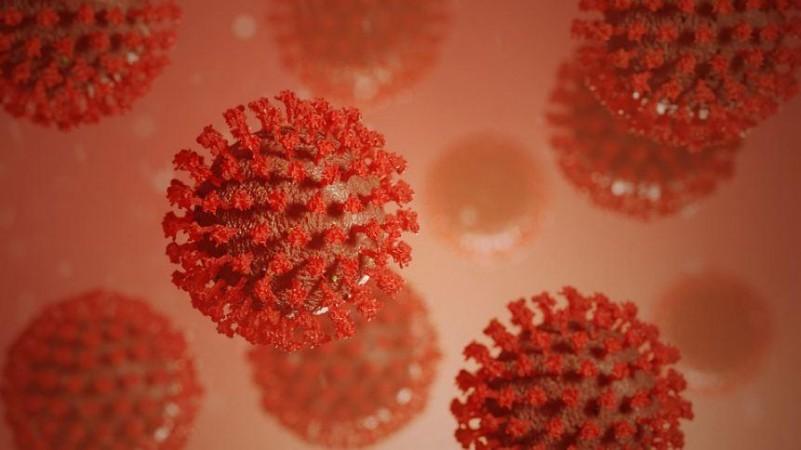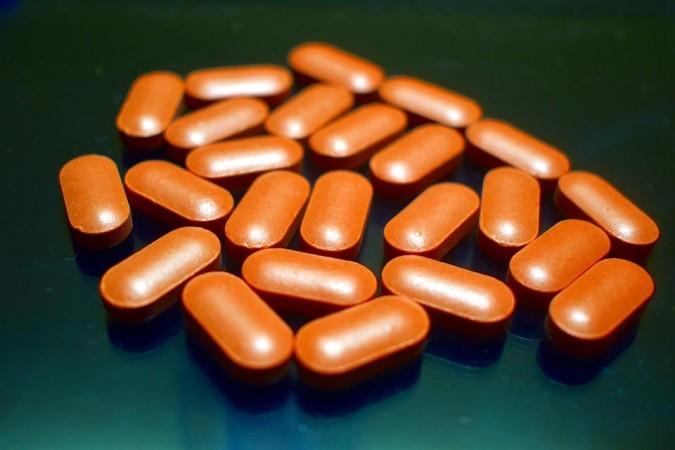Since the beginning of the COVID-19 pandemic, researchers across the world have been working around the clock to expedite the testing of novel drugs against the SARS-CoV-2 virus. However, a section of the scientific community has turned to existing drugs, hoping to repurpose them to tackle the tricky pathogen. Now, a new study has reported that Mefloquine—an anti-malarial drug—is highly effective against the novel coronavirus.
According to the multi-institutional Japanese study, during the screening of several drugs, Mefloquine was found to exhibit a strong antiviral action against the SARS-CoV-2 by inhibiting its entry into cells following its attachment to them. The scientists also demonstrated that Mefloquine, in combination with another antiviral drug, Nelfinavir, exhibited a synergistic antiviral activity against the virus. The findings were published in the journal Frontiers in Microbiology.
"We found that Mefloquine had the highest anti-SARS-CoV-2 activity among the tested compounds. Upon testing it against other quinoline derivatives, such as Hydrochloroquine, in a cell line mimicking the cell-based environments of human lung cells, we found it to be better," said Dr. Koichi Watashi, corresponding author of the study, in a statement.
Turning to Existing Drugs

Several existing drug compounds have been touted as potential treatments against the SARS-CoV-2. Approved drugs such as Hydroxychloroquine (HCQ), Interferon, Lopinavir, and Remdesiver, among others have been studied to ascertain their effectiveness against the coronavirus. Though they have been utilized clinically, their efficacies are not established.
Successive randomized trials have also failed to yield results that concretely support their usefulness. Among these agents, only Remdesivir has received approval for clinical use in some countries. Nevertheless, its efficiency has been widely debated.
Mefloquine is an antimalarial drug used to the treat mild to moderate cases of malaria. It is also used as a prophylactic (preventive medication) against the Plasmodium–caused disease. Mefloquine is used to manage malaria caused by two protozoans in particular— Plasmodium falciparum and Plasmodium vivax. Interestingly, it is also a derivative of quinine, much like Hydrochloroquine. The drug shows heightened action against chloroquine-resistant forms of P. falciparum.
On the other hand, Nelfinavir is an antiretroviral drug used in the treatment of HIV (human immunodeficiency viruses) infection. It is a protease inhibitor –a drug that prevents the replication of HIV—and is nearly always used in combination with other antiretroviral medications. Through its activity, Nelfinavir reduces the quantity of HIV circulating in the blood. In the current research, the scientists tested the potency of not just Mefloquine, but also its joint action with Nelfinavir.
Identifying A Promising Drug

For the study, the team screened 27 approved antiparasitic/antiprotozoal drugs. Cultured cells were infected with SARS-CoV-2 virus isolated from a COVID-19 patient. After allowing the infection of cells, the unbound virus' were removed. The cells were then cultured for 24 hours to measure extracellular viral RNA or detect the viral 'N-protein', or for duration of 48 hours to observe the cytopathic effect (CPE) induced by SARS-CoV-2. Following this, the cells were treated with the chosen compounds.
It was found the Mefloquine displayed the strongest action against the coronavirus. When its antiviral activities with HCQ and an additional chloroquine derivative—primaquine, Mefloquine was found to protect the cells best from virus-induced cellular changes. Additionally, the quantity of viral RNA released in the cell culture was also reduced by the antimalarial drug.
"In our cell assays, Mefloquine readily reduced the viral RNA levels when applied at the viral entry phase but showed no activity during virus-cell attachment. This shows that Mefloquine is effective on SARS-COV-2 entry into cells after attachment on cell surface," explained Dr. Watashi, about the drug's ability to reduce cellular entry of the virus.
Antiviral 'Synergy' Against SARS-CoV-2

Next, the team sought to boost Mefloquine's antiviral activity. Therefore, they combined the drug with Nelfinavir, which inhibits the replication step of the SARS-CoV-2. Intriguingly, the two drug were found to act in 'synergy'. They not only showed improved antiviral activity (than what they did individually) but they also showed no toxicity against the cells.
While lab studies may provide promising results against the SARS-CoV-2, more than often, they do not translate into real world benefits. Thus, the authors employed a mathematical model to predict the potential efficaciousness if Mefloquine was actually used to treat COVID-19. The model predicted that Mefloquine could decrease the overall viral load in patients to less than 7 percent and cut the 'time-till-virus-elimination' by 6.1 days.
The researchers, however, admitted that the study was bound by the limitation of not using an in vivo infection model. "Our analysis highlights the anti-SARS-CoV-2 potency of MFQ, of which efficacy is expected to be further evaluated in the future through in vivo or clinical testing," the authors concluded.

















